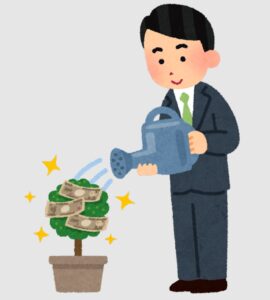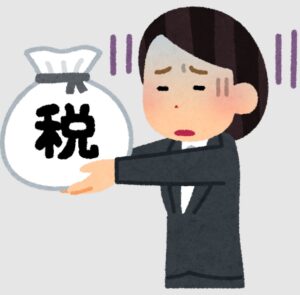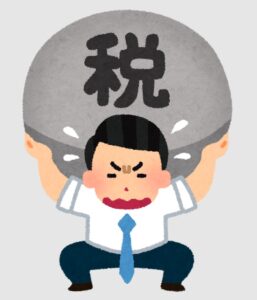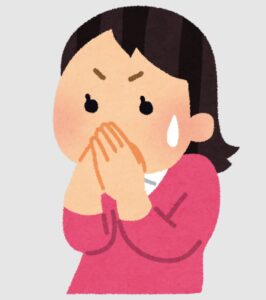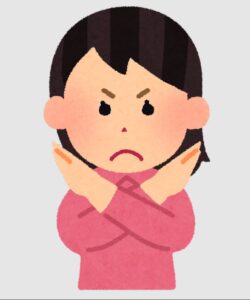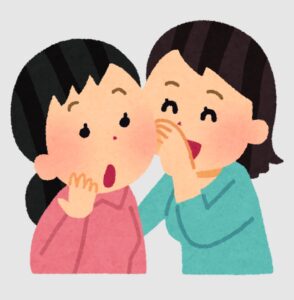管理人オススメコンテンツはこちら
「医療保険なんかは必要無い|ムダな保険にNO!最適な保障を見極めよう」
〜前回のつづき〜
●公的保険と貯金で、余計な保険なんて無駄|公的保険=世界最強

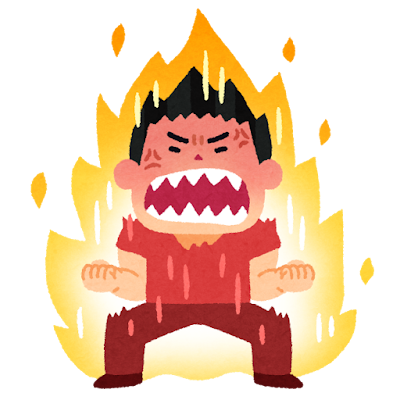
「病気や入院はどうするんだ!」
という声があろうかと思います。
これも今までのお話しの中で
触れてきましたけど
・健康保険
・傷病手当金
・高額療養費制度
世界最強の保険に
日本人であれば既に入っているので
公的保険で対応する。
そこで
プラスアルファ足りない分や
どうしても
最低限必要な分というのは
貯金でカバーする。
だから最低限の貯蓄があれば
別に医療保険なんかは必要無いと
お話ししてきました。
●必要最低限。それ以外の保険は全部ムダ金~保険と投資と貯蓄を一緒にするな~

・投資は投資
・貯蓄は貯蓄
別で考えなかったら
高いコストを払う事になる
という事ですね。
ボッタクリの手数料を取られても
文句は言えない。
仕方ないという事ですね。
共済は掛け捨て専門の
保険会社の一つだと考えたら
丁度良いかと思います。
あとは
商品内容で判断して下さい。
大切な事は

無駄な保険には極力入らない
という事です。
自分に必要な
最低限の保障を考えて
最低限加入する
というのが大切ですね。
●保険についてのオススメ書籍
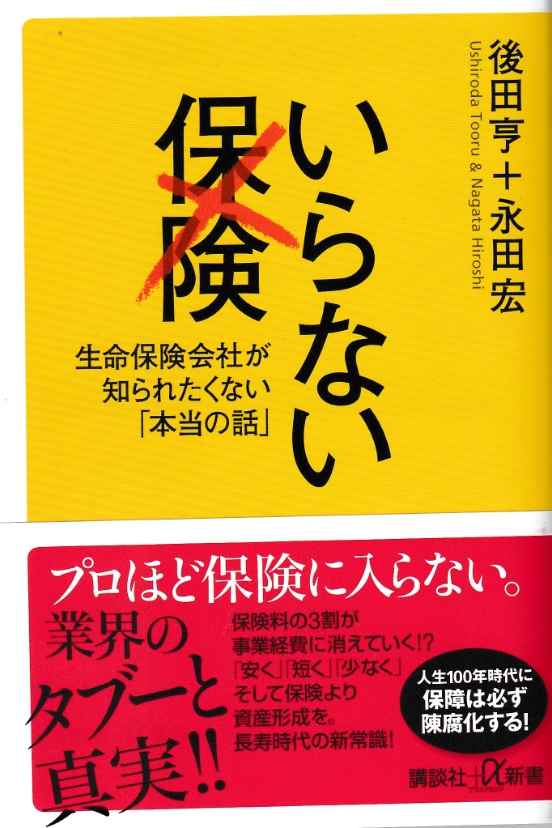
「生命保険会社が知られなくない本当の話」
「プロほど保険に入らない」
なかなか内容のいい本なので
読んでみて欲しいかと思います。
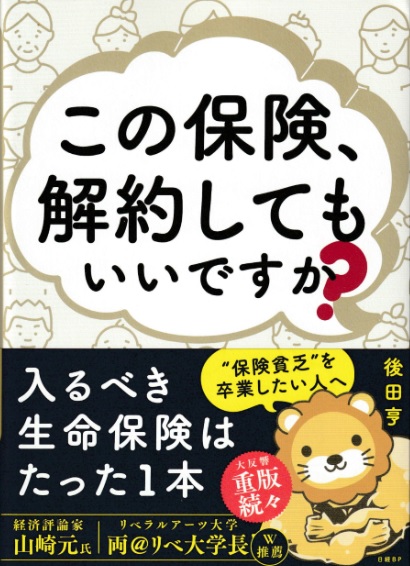
保険業界の裏事情や仕組みを
知り尽くした著者によって
詳しく解説されています。
『保険会社の取り分の多さ』
『保険の基本構造は宝くじと一緒』
など赤裸々に
保険の闇を暴いています。
●まとめ
◆保険と共済の違い
→保険会社は営利目的
共済は非営利
◆商品の特徴
→(1)共済の場合
a)掛金が一律
b)パッケージ商品
c)保障金額が少ない
d)基本は掛け捨て商品のみ
e)高齢時の保障が薄くなる
(2)保険の場合
a)年齢や性別で保険料が変わる
b)種類が豊富
c)保険金額が柔軟に設定できる
d)貯蓄型はボッタクリが多い
e)高齢時の保険料の支払いが高くなる
◆結局民間保険と共済どっちがいいの?
→一長一短
◆共済そのものはボッタクリではない
→が保障は薄い
◆再度保険の目的を考える
→『今の自分』に合った保障の保険に入る
◆公的保険=世界最強
→だから最低限の貯蓄があれば別に医療保険なんかは必要無い
◆保険と投資と貯蓄を一緒にしない
→無駄な保険には極力入らない
◆保険についてのオススメ書籍
●あとがき
共済は掛け捨てに特化した保険会社
と思っておくぐらいで
イメージ的には丁度いいかと思います。
共済がどうと言うより
商品内容と保障をみて
判断するという事です。
共済どう?と聞かれても
内容によります。
その商品によるので。
ただ
共済で取り扱ってる商品というのは
大体同じような感じです。
どの保険会社がいいですか?と
聞かれているような感じになっちゃうので
その共済かどうかというよりは
商品内容と保障を見て判断する
という事です。
共済は基本的に低コスト。
民間の保険会社よりも
若干掛金は安いんですけど
その分保障も薄いという事ですね。
大切な事は
必要最低限の保険にしか入らない
という事です。
もしも私が
生命保険に入らなければいけない
妻子持ちで
死亡保障をつけなければならない
という状態だったとしたら
共済ではなくて
民間の死亡保障に
掛け捨てで入るかと思います。
理由はいくつか有りますが
どの程度保証が付くかという所と
医療保険がいらないかと思っているので
余計なものが付いてくるというのが
別にいらないかなぁと思ってます。
その分必ずコストは乗っているので。
それなんだったらシンプルに
死亡保障の分だけ
掛け捨てで入れる方がいいかと思います。
ボッタクリ保険を買わされなければ
ぶっちゃけ大きくは間違えないというか
共済でも民間保険でもどっちでもいいかと。
後で失敗したなぁと思ったら
変えたりしても
人生を大きく失敗するというか
大損するような失敗というか
金額ではないので
正直共済でも民間保険でも
どっちでもいいと言ってしまえば
どっちでもいいんですけどね。
その辺は
今までの保険のお話しを
読んできてくれたあなたであれば
自分自身で解決できる
判断できると思うので
過去の保険についてのお話しも
参考にしてみてください。
Special Thanks college president Ryo.
(※本文中にはAmazonアソシエイトリンクが含まれています)

●おまけ
≪≪Chat-GPTくんによる要約→perplexityちゃんによる文章まとめ≫≫
日本の公的医療保険は世界トップクラスの充実度を誇り、健康保険や高額療養費制度などで多くの医療リスクをカバーできます。そのため、医療保険などの民間保険は、最低限の貯蓄があれば基本的に不要です。
保険・投資・貯蓄は別々に考えることが重要で、混同すると高いコストを支払うことになります。共済は掛け捨て型でコストは低いものの保障は薄く、民間保険は保障内容が豊富ですが費用がかかりがちです。どちらが良いかは一長一短で、自分に必要な最低限の保障を見極めて加入することが大切です。無駄な保険に入らず、本当に必要な保障だけを選ぶことが賢明です。
おすすめ書籍も参考にし、保険の仕組みを理解して賢く備えましょう。
Citations:
[1] https://www.med.or.jp/people/info/kaifo/feature/
[2] https://www.taiyo-seimei.co.jp/net_lineup/colum/basic/002.html
[3] https://www.life8739.co.jp/product/iryo/column03
[4] https://www.tmn-anshin.co.jp/solution/basic/public-health-insurance/
[5] https://mushanavi.com/author/jiyujin/blog2/entry-6919.html
[6] https://www.nurse.or.jp/nursing/health_system/point/index.html
[7] https://www.med.or.jp/people/info/kaifo/
≪≪Chat-GPTくんによる英訳≫≫
~Continuing from Last Time~
【Public Insurance + Savings = No Need for Extra Insurance | Public Insurance = The Strongest in the World】
You might be wondering:
“But what if I get sick or hospitalized?”
As mentioned before, Japan has:
Health Insurance
Sickness and Injury Allowance
High-Cost Medical Expense Benefit
If you’re Japanese, you’re already enrolled in the world’s strongest insurance system — the public health system.
So, for any additional costs or truly unavoidable gaps, you cover them with your own savings.
In short, if you have some basic savings,
you really don’t need private health insurance.
—
【Stick to the Essentials. Everything Else is Wasted Money】
Don’t Mix Insurance, Investing, and Saving
Investments are investments.
Savings are savings.
If you mix them up, you’ll end up paying high costs —
and if you get hit with outrageous fees, you can’t really complain.
It’s just how it works.
You can think of Kyosai (co-op insurance) as a specialized “term insurance provider.”
That’s probably the most accurate image.
The rest comes down to examining the actual product details.
The key point is:
Avoid unnecessary insurance as much as possible.
Only consider the minimum necessary coverage for your situation —
and only get what you actually need.
—
【Recommended Books About Insurance】
Useless Insurance (いらない保険)
The Truth Life Insurance Companies Don’t Want You to Kno
The More You Know, the Less Insurance You Buy
Should I Cancel This Insurance?
These books are well-written and worth reading.
They dig deep into the insurance industry’s shady side and explain:
How much the insurance companies take as profit
That insurance is structured like a lottery
—
【Summary】
◆ Difference Between Private Insurance and Kyosai
Private insurers = for-profit
Kyosai = non-profit
◆ Product Features
Kyosai:
Flat premiums
Pre-packaged products
Lower coverage amounts
Term insurance only
Less coverage as you age
Private Insurance:
Premiums vary by age/gender
Wider variety of plans
Flexible coverage options
Many overpriced “savings-type” plans
Higher premiums in old age
—
◆ Which is Better — Kyosai or Private Insurance?
→ Each has pros and cons.
Kyosai isn’t a scam,
but the coverage is thin.
—
◆ Reconsider the Purpose of Insurance
→ Choose coverage that fits your current life situation.
—
◆ Public Insurance = The Strongest
→ So with minimum savings, you don’t need private health insurance.
—
◆ Don’t Mix Insurance with Investing or Saving
→ Keep them separate. Avoid wasteful insurance policies.
—
◆ Recommended Reading
Useless Insurance
Should I Cancel This Insurance?
—
【Afterword】
Think of Kyosai as a company that specializes in term-only, low-cost coverage.
But instead of asking “Is Kyosai good?”
focus on what the product covers.
It’s like asking “Which company is better?”
when what really matters is the plan’s contents and terms.
Yes, Kyosai is generally low-cost.
But that’s because the coverage is limited compared to private plans.
The most important thing is:
Only enroll in what you really need.
—
If I were someone with a family and needed life insurance,
I’d probably go with a private term plan, not Kyosai.
Why?
Because I don’t need extra features like medical insurance,
and I want to avoid plans that bundle unnecessary coverage.
They just add cost.
I’d rather keep it simple and go for pure death benefit coverage.
As long as you avoid scammy products,
you won’t go too far wrong —
whether it’s Kyosai or private insurance.
Even if you later regret your choice,
you can switch plans.
It’s not going to ruin your life financially.
In the end, either option is fine as long as you’re informed.
If you’ve been following these discussions,
I believe you’re already capable of making that judgment for yourself.
So go back, review the previous articles, and make a rational, informed decision.
Special Thanks OpenAI and Perplexity AI, Inc


